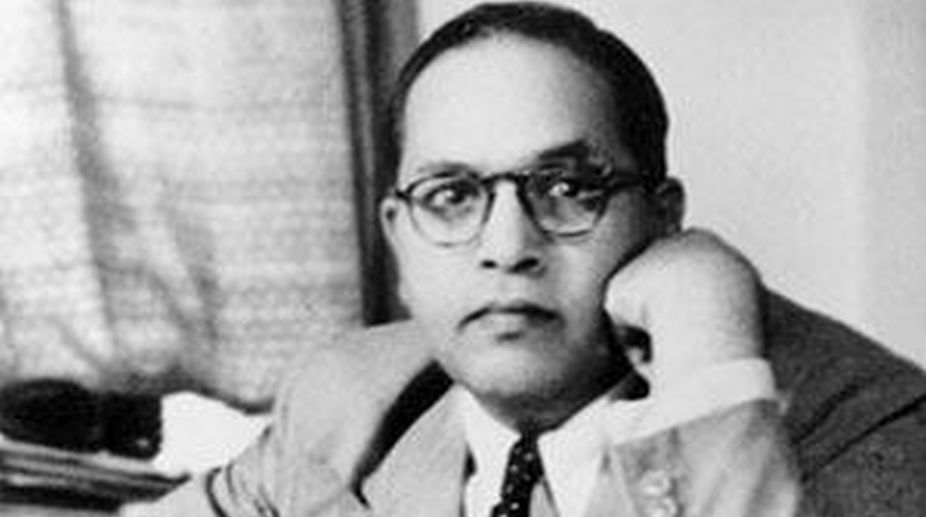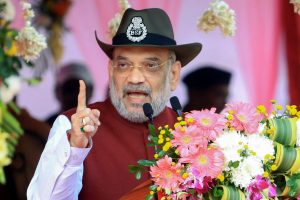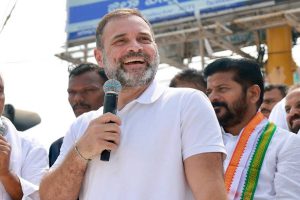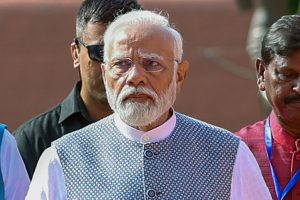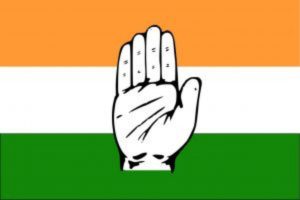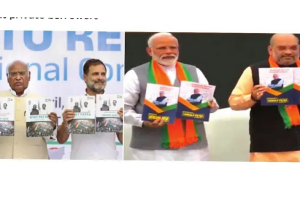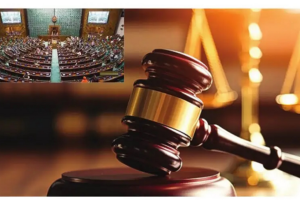Seminars, lectures, special programmes for Dalits, and other activities marked the quasquicentennial birth anniversary of Dr BR Ambedkar last year. Parties and personalities across the political spectrum were involved in a competitive display of their high regard for the man, while true Ambedkerites wondered how far such projected adulation actually flowed from a genuine understanding of the man and his mission, his scholasticism and dogged determination for ameliorating the conditions of depressed classes and creating a truly democratic social order in India.
Excessive glorification or lionization of Ambedkar is only a relatively recent phenomenon and indicates an agenda of coopting the increasingly assertive strand of Dalit politics. During his lifetime, Ambedkar was a much misunderstood man. For many stalwarts of our freedom movement, he was a renegade and his preoccupation with the Dalit issue was viewed as an obstacle towards attainment of freedom at the earliest. His biographer Dhananjay Keer in his celebrated book, Dr Ambedkar: Life and Mission, has dwelt on the unwavering commitment of Babasaheb to the emancipation of the depressed classes from centuries of inhuman exploitation, his tireless striving to reach that goal and his unhesitant rejection of the politics of the Congress under Mahatma Gandhi. Ambedkar felt that the ‘BaniaBrahmin’ dominated party was not genuinely sensitive to the miseries of the Dalits. At a time when the entire country catapulted Gandhi to a messianic stature, when the world viewed him as the supreme benefactor of the ‘Harijan’, India’s dispossessed untouchables, Ambedkar would not be swayed by what he viewed as conciliatory, placatory treatment of the untouchables by Gandhi. He would not accept anything less than a substantial share of political power for the Dalits as the means to usher in a social revolution. Despite stiff resistance from Gandhi behind whom stood the currents of mainstream politics in India during the second Round Table Conference, Ambedkar secured a separate electorate for the depressed classes, and consequently incurred trenchant criticism from the Indian press which even branded him ‘unpatriotic’. But nothing could shake his commitment to his own people.
A maverick, a scholar of high caliber, a social reformer, a Constitution maker, a jurist, sociologist and a political economist of the first degree, Dr Ambedkar was all of these and more. His brilliant mind was strengthened by a fearless heart and acerbic tongue, as he minced no words in condemning the hypocritical approach of the so-called liberals towards the Dalit issue.
At a time when majoritarian exclusivity is being used to define the contours of Indian nationhood, one should recall Ambedkar’s conceptualization of the nation, not as a transcendental entity, personified by a Goddess whose victory needs to be hailed by all citizens, but as a community of diverse groups, bound together by ties of mutual respect, concern and commitment. The cow vigilantes and the crusader against eating beef might find it unpalatable that Ambedkar analysed the taboo associated with such consumption to beef eating as a tool devised by the Brahmins to humiliate and degrade the depressed classes. Although Brahmins themselves ate all varieties of meat earlier, they later moved towards vegetarianism and glorified it just to shame the dispossessed and poor Dalits for whom it was an affordable option. Disparaging treatment of the food habit of the depressed class was a tool of legitimizing the cultural domination of the upper caste Hindus. At one point of time, he was so exasperated with the inflexibility of Hindu society, particularly the deeply enmeshed caste system, that he abandoned the hope of ameliorating the condition of Dalits within the matrix of the Hindu social order and decided to convert to Budhhism which he viewed as a more egalitarian and democratic religious order. The attempt of the Hindu right to appropriate him as one of its own militates against the disillusionment of an embattled Ambedkar.
While many in India consider Gandhi as the man who worked wonders by paving the way towards India’s freedom through his Satyagraha, Civil disobedience and Quit India movements which generated mass mobilization on an unprecedented scale, Ambedkar felt otherwise. In an interview given to BBC in 1955, much after Independence, he aired his unconventional belief that Netaji Subhas Bose and not Gandhi gave us our freedom. With his characteristic candour, he spoke about the Indian National Army raised by Netaji, ‘The British had been ruling the country in the firm belief that whatever may happen in the country or whatever the politicians do, they will never be able to change the loyalty of soldiers. That was one prop on which they were carrying on the administration. And that was completely dashed to pieces. They found that soldiers could be seduced to form a party ~ a battalion to blow off the British.’
Ambedkar was not only at odds with the liberals of the Congress and the Hindu orthodoxy, he did not agree with the Marxists either and considered their view of caste as essentially an issue of economic inequality to be a reductionist perspective. He strongly felt that inequality within Hindu society is not only economic but also social and psychological and represents a civilizational crisis.
He cautioned his own community as well, observing that centuries of oppression and denial of access to education have bred among Dalits evil habits and bad ways of living, ugly customs, passivity, a sense of helplessness, the tendency to pursue their narrow self-interest, hierarchical gradation among themselves, low ambition and so on. He exhorted them to receive education, to do away with evil practices, to develop solidarity with fellow members of the community and be worthy of the rights and social respect they are aspiring and fighting for. He rued the deplorable tendency of those members of the community who after gaining access to education and social respectability, moved away from their community instead of serving their less fortunate brothers and sisters.
At his insistence, the Drafting Committee incorporated the principle ‘Fraternity’ in the Preamble to our Constitution, in conjunction with Justice, Liberty and Fraternity. As he told the Constituent Assembly, “Fraternity means a sense of common brotherhood of all Indians, of Indians being one people. It is the principle which gives unity and solidarity to social life. How difficult it is for Indians to think that they are a nation. The realization of this goal is going to be very difficult. In India there are castes. The castes are anti-national, in the first place, because they bring about separation in social life. They are anti-national also because they generate jealousy and antipathy between caste and caste. But we must overcome all these difficulties if we wish to become a nation in reality. For fraternity can be a fact only when there is a nation. Without fraternity, equality and liberty will be no deeper than coats of paint.’ Treating people with respect, even if they are less privileged, is still a distant reality. Public flogging of Dalits in Una, the suicide of a bright young scholar Rohit Vemula who could not avoid the catastrophic ill effects of the accident of his birth, and similar other unfortunate events are a grim reminder of the unfulfilled work of Ambedkar. As we have failed to realize the goal of fraternity, can we claim to be the protector of his legacy?
Ambedkar never ceased to think critically, never hesitated to dismantle even his own works and ideas if he felt that the context has changed radically, and despite being widely revered as the father of the Indian Constitution, did not bat an eyelid to comment that he would not hesitate to burn the statute if it failed to live up to its avowed objectives. Perhaps, we need to ponder his poignant and almost prophetic words in the windingup speech in the Constituent Assembly on 25th November 1949 ~ “In India, Bhakti plays a part in politics which is unequalled in magnitude by the part it plays in the politics of any other country in the world. Bhakti in religion may be the road to the salvation of a soul, but in politics, Bhakti or hero worship is a sure road to degradation and eventual dictatorship.”
The writer is Associate Professor, Department of Political Science, Women’s Christian College, Kolkata.

